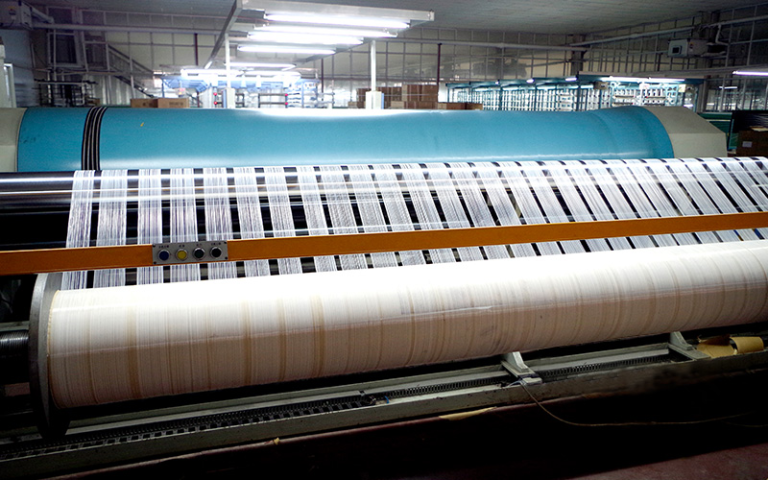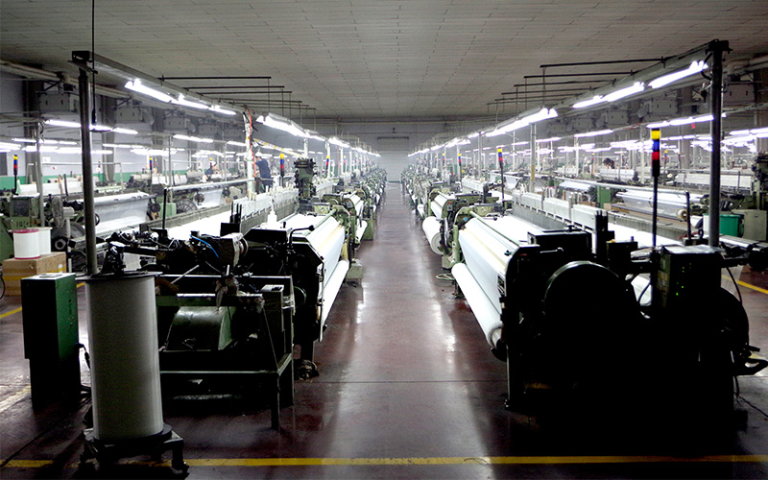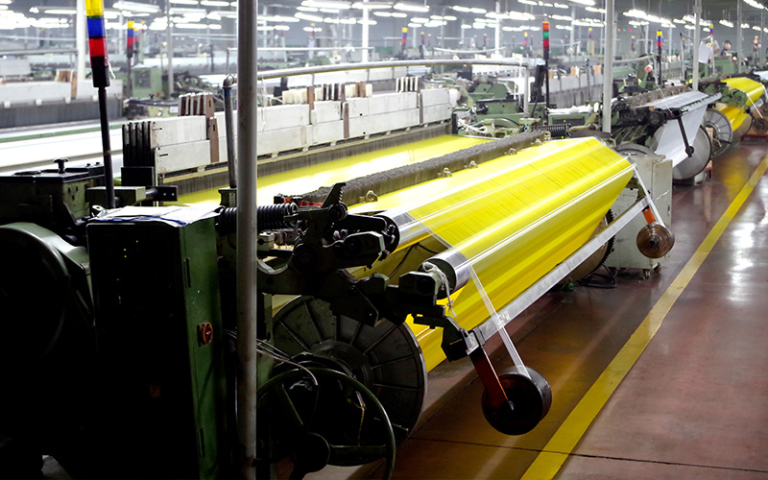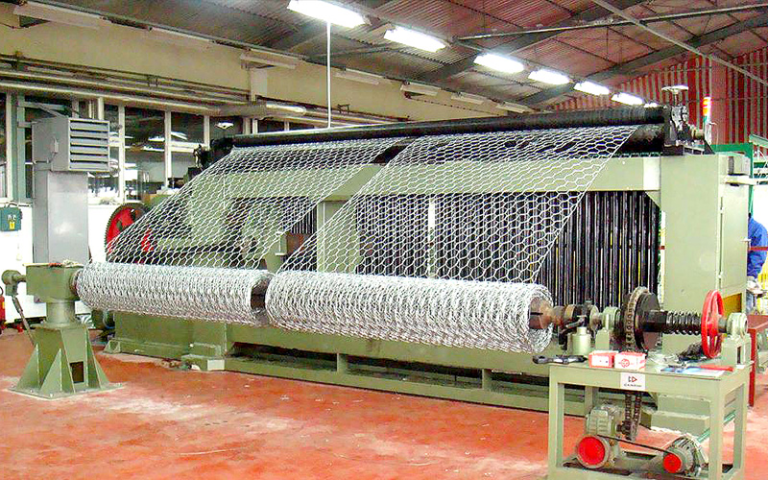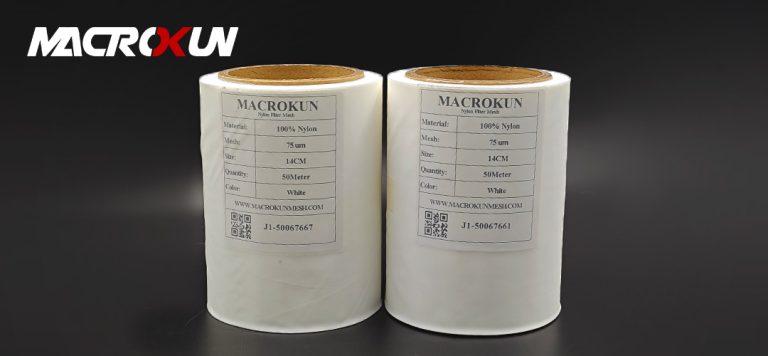Table of Contents
Increased Durability and Longevity
micron mesh fabric is a versatile material that has become increasingly popular in industrial settings due to its numerous benefits. One of the key advantages of using micron mesh fabric is its increased durability and longevity compared to other materials. This makes it an ideal choice for a wide range of applications where strength and resilience are essential.
One of the main reasons why micron mesh fabric is so durable is its construction. Made from high-quality materials such as stainless steel or other metals, micron mesh fabric is designed to withstand the rigors of industrial use. This means that it can withstand high temperatures, heavy loads, and harsh chemicals without losing its structural integrity. As a result, micron mesh fabric is able to maintain its shape and strength over time, making it a reliable option for industrial applications.
| Model | Mesh Count (/cm) |
Mesh Count (/inch) |
Thread Dia (um) |
Mesh Opening (um) |
Thickness (um) |
Weight (g/m2) |
| NL4/1950 | 4 | 10 | 550 | 1950 | 1100 | 307 |
| NL5/1500 | 5 | 13 | 500 | 1500 | 1000 | 318 |
| NL6/1267 | 6 | 15 | 400 | 1267 | 800 | 244 |
| NL7/1079 | 7 | 18 | 350 | 1079 | 700 | 218 |
| NL8/900 | 8 | 20 | 350 | 900 | 700 | 249 |
| NL9/861 | 9 | 23 | 250 | 861 | 500 | 143 |
| NL9/811 | 9 | 23 | 300 | 811 | 600 | 206 |
| NL10/750 | 10 | 25 | 250 | 750 | 500 | 159 |
| NL10/700 | 10 | 25 | 300 | 700 | 600 | 229 |
| NL12/583 | 12 | 30 | 250 | 583 | 500 | 191 |
| NL12/533 | 12 | 30 | 300 | 533 | 600 | 274 |
| NL14/514 | 14 | 36 | 200 | 514 | 340 | 142 |
| NL16/425 | 16 | 40 | 200 | 425 | 340 | 160 |
| NL20/350 | 20 | 50 | 150 | 350 | 255 | 113 |
| NL20/300 | 20 | 50 | 200 | 300 | 340 | 200 |
| NL24/267 | 24 | 60 | 150 | 267 | 255 | 135 |
| NL28/237 | 28 | 70 | 120 | 237 | 204 | 101 |
| NL30/213 | 30 | 76 | 120 | 213 | 204 | 110 |
| NL32/213 | 32 | 80 | 100 | 213 | 170 | 80 |
| NL36/178 | 36 | 90 | 100 | 178 | 170 | 90 |
| NL40/150 | 40 | 100 | 100 | 150 | 170 | 100 |
| NL43/153 | 43 | 110 | 80 | 153 | 136 | 70 |
| NL48/128 | 48 | 120 | 80 | 128 | 136 | 77 |
| NL56/119 | 56 | 140 | 60 | 119 | 102 | 50 |
| NL64/96 | 64 | 160 | 60 | 96 | 102 | 58 |
| NL72/89 | 72 | 180 | 50 | 89 | 85 | 45 |
| NL80/75 | 80 | 200 | 50 | 75 | 85 | 50 |
| NL100/57 | 100 | 250 | 43 | 57 | 73 | 46 |
| NL110/48 | 110 | 280 | 43 | 48 | 73 | 52 |
| NL120/48 | 120 | 300 | 35 | 48 | 60 | 37 |
| NL120/40 | 120 | 300 | 43 | 40 | 73 | 55 |
| NL130/42 | 130 | 330 | 35 | 42 | 60 | 40 |
| NL130/34 | 130 | 330 | 43 | 34 | 73 | 61 |
| NL140/36 | 140 | 350 | 35 | 36 | 60 | 43 |
| NL157/25 | 157 | 400 | 43 | 25 | 73 | 74 |
| NL180/20 | 180 | 450 | 39 | 20 | 66 | 68 |
| NL200/15 | 200 | 500 | 39 | 15 | 66 | 76 |
| NL220/10 | 220 | 550 | 39 | 10 | 66 | 84 |
| NL240/5 | 240 | 600 | 39 | 5 | 66 | 91 |
In addition to its durability, micron mesh fabric also offers a long lifespan. Unlike other materials that may degrade or wear out quickly, micron mesh fabric is designed to last for years, even in demanding industrial environments. This means that companies can rely on micron mesh fabric to provide consistent performance and protection for their equipment and processes, reducing the need for frequent replacements and repairs.
Another benefit of using micron mesh fabric in industrial settings is its resistance to corrosion and rust. Because micron mesh fabric is typically made from metals such as stainless steel, it is able to withstand exposure to moisture, chemicals, and other corrosive substances without deteriorating. This makes it an ideal choice for applications where corrosion resistance is essential, such as in the food and beverage industry or in marine environments.
Furthermore, micron mesh fabric is also highly versatile, making it suitable for a wide range of industrial applications. Whether it is used for filtration, separation, screening, or reinforcement, micron mesh fabric can be customized to meet the specific needs of each application. This flexibility allows companies to use micron mesh fabric in a variety of ways, maximizing its benefits and ensuring optimal performance.
Overall, the increased durability and longevity of micron mesh fabric make it a top choice for industrial settings. Its ability to withstand harsh conditions, resist corrosion, and provide long-lasting performance make it a valuable investment for companies looking to improve the efficiency and reliability of their operations. By choosing micron mesh fabric, companies can benefit from a material that is not only strong and durable but also versatile and cost-effective.
Enhanced Airflow and Ventilation
Micron mesh fabric is a versatile material that has gained popularity in various industrial settings due to its numerous benefits. One of the key advantages of using micron mesh fabric is its ability to enhance airflow and ventilation in a wide range of applications.
In industrial settings, proper airflow and ventilation are essential for maintaining a comfortable and safe working environment. Micron mesh fabric is designed to allow air to flow freely through the material, which helps to regulate temperature and prevent the buildup of heat and moisture. This can be particularly beneficial in environments where workers are exposed to high temperatures or humidity, as improved airflow can help to reduce the risk of heat-related illnesses and improve overall comfort.
Additionally, enhanced airflow and ventilation can also help to improve the efficiency of certain industrial processes. For example, in manufacturing facilities where machinery generates heat, proper ventilation can help to prevent overheating and ensure that equipment operates at optimal levels. By using micron mesh fabric to improve airflow in these settings, companies can potentially increase productivity and reduce the risk of equipment malfunctions.
Furthermore, micron mesh fabric can also be used to create barriers or partitions that allow for airflow while still providing some level of privacy or separation. This can be particularly useful in industrial settings where different areas of a facility require different levels of ventilation or where certain processes need to be isolated from others. By using micron mesh fabric to create these barriers, companies can maintain airflow while still meeting the specific needs of each area within the facility.
Another benefit of using micron mesh fabric for enhanced airflow and ventilation is its durability and resistance to wear and tear. In industrial settings, materials are often subjected to harsh conditions, such as exposure to chemicals, extreme temperatures, and heavy machinery. Micron mesh fabric is designed to withstand these conditions and maintain its integrity over time, making it a reliable choice for applications where airflow and ventilation are critical.
Overall, the use of micron mesh fabric in industrial settings can provide numerous benefits, including enhanced airflow and ventilation. By allowing air to flow freely through the material, micron mesh fabric can help to regulate temperature, improve comfort, and increase the efficiency of industrial processes. Additionally, its durability and resistance to wear and tear make it a reliable choice for applications where airflow and ventilation are essential. Companies looking to improve airflow and ventilation in their industrial facilities should consider the many advantages of using micron mesh fabric.
Improved Filtration Efficiency
Micron mesh fabric is a versatile material that has gained popularity in various industrial settings due to its numerous benefits. One of the key advantages of using micron mesh fabric is its improved filtration efficiency. In this article, we will explore how this fabric enhances filtration processes and why it is a preferred choice in industrial applications.
To begin with, micron mesh fabric is specifically designed to have a high number of tiny openings per square inch. These openings, known as microns, allow for the passage of air or liquid while effectively trapping particles of a certain size. This feature makes micron mesh fabric ideal for filtration purposes, as it can effectively remove contaminants from a fluid or gas stream.
The improved filtration efficiency of micron mesh fabric can be attributed to its precise and uniform pore size distribution. Unlike other filtration materials, such as woven fabrics or paper filters, micron mesh fabric offers a consistent pore size throughout its structure. This uniformity ensures that particles of a specific size are captured, resulting in a more efficient filtration process.
Furthermore, micron mesh fabric is available in a wide range of pore sizes, allowing for customization based on specific filtration requirements. Whether it is removing large particles or capturing microscopic contaminants, micron mesh fabric can be tailored to meet the desired filtration needs. This versatility makes it a valuable asset in various industrial applications, including water treatment, oil and gas refining, pharmaceutical manufacturing, and food processing.
In addition to its precise pore size distribution, micron mesh fabric also offers excellent durability and longevity. Industrial environments often involve harsh conditions, such as high temperatures, corrosive chemicals, and abrasive materials. Micron mesh fabric is designed to withstand these challenging conditions, ensuring that it maintains its filtration efficiency over an extended period.
Moreover, micron mesh fabric is resistant to clogging, which is a common issue faced by many filtration materials. The uniform pore size and smooth surface of micron mesh fabric prevent the accumulation of particles, preventing clogging and maintaining a consistent flow rate. This resistance to clogging not only improves filtration efficiency but also reduces maintenance requirements and downtime in industrial processes.

Another advantage of using micron mesh fabric in industrial settings is its compatibility with various filtration systems. Whether it is a simple gravity-fed system or a complex high-pressure filtration setup, micron mesh fabric can be seamlessly integrated into different filtration systems. This adaptability allows for easy installation and replacement, minimizing downtime and ensuring uninterrupted filtration processes.
In conclusion, the use of micron mesh fabric in industrial settings offers significant benefits, particularly in terms of improved filtration efficiency. Its precise pore size distribution, customization options, durability, resistance to clogging, and compatibility with different filtration systems make it an ideal choice for a wide range of applications. Whether it is removing contaminants from water, purifying gases, or separating particles in manufacturing processes, micron mesh fabric proves to be a reliable and efficient filtration solution.
Cost-Effective Solution
Micron mesh fabric is a versatile material that has a wide range of applications in various industries. One of the top benefits of using micron mesh fabric in industrial settings is its cost-effectiveness. This fabric is durable and long-lasting, which means that it can withstand the wear and tear of daily use in industrial environments. This durability translates to cost savings for businesses, as they do not have to constantly replace worn-out materials.
In addition to being cost-effective in terms of longevity, micron mesh fabric is also affordable to purchase. Compared to other materials used in industrial settings, such as metal or plastic, micron mesh fabric is relatively inexpensive. This makes it an attractive option for businesses looking to save money on their material costs without sacrificing quality.

Another cost-saving benefit of using micron mesh fabric in industrial settings is its lightweight nature. This fabric is easy to transport and install, which can save businesses time and money on labor costs. Additionally, the lightweight nature of micron mesh fabric means that it requires less structural support than heavier materials, further reducing costs for businesses.
Furthermore, micron mesh fabric is easy to clean and maintain, which can save businesses money on cleaning supplies and labor costs. This fabric is resistant to stains and odors, making it a low-maintenance option for industrial settings. By choosing micron mesh fabric, businesses can reduce the amount of time and money spent on cleaning and maintenance, allowing them to focus on more important aspects of their operations.
Overall, the cost-effectiveness of using micron mesh fabric in industrial settings makes it a smart choice for businesses looking to save money without sacrificing quality. This durable, affordable, lightweight, and easy-to-maintain material is a cost-effective solution for a wide range of industrial applications.
In conclusion, the benefits of using micron mesh fabric in industrial settings are numerous, with cost-effectiveness being one of the top advantages. This versatile material offers businesses a durable, affordable, lightweight, and easy-to-maintain solution for their industrial needs. By choosing micron mesh fabric, businesses can save money on material costs, labor costs, and cleaning and maintenance costs, making it a smart investment for any industrial setting.
Resistance to Harsh Chemicals and Environments
Micron mesh fabric is a versatile material that has gained popularity in various industrial settings due to its numerous benefits. One of the key advantages of using micron mesh fabric in industrial applications is its resistance to harsh chemicals and environments.
In industrial settings, exposure to chemicals and harsh environments is a common occurrence. Traditional fabrics may not be able to withstand the corrosive effects of these substances, leading to deterioration and reduced effectiveness over time. Micron mesh fabric, on the other hand, is specifically designed to resist the damaging effects of chemicals and harsh environments.
The unique construction of micron mesh fabric allows it to maintain its integrity even when exposed to corrosive substances. This makes it an ideal choice for applications where protection against chemical exposure is essential. Whether it’s in a chemical processing plant, a wastewater treatment facility, or a laboratory setting, micron mesh fabric provides a reliable barrier against harmful substances.
Furthermore, micron mesh fabric is also resistant to extreme temperatures and humidity levels. This makes it suitable for use in environments where temperature fluctuations are common, such as industrial ovens, freezers, and outdoor settings. The ability of micron mesh fabric to withstand these conditions ensures that it remains durable and effective in a wide range of industrial applications.

Another benefit of using micron mesh fabric in industrial settings is its durability. Traditional fabrics may wear out quickly when exposed to harsh chemicals and environments, leading to frequent replacements and increased maintenance costs. Micron mesh fabric, on the other hand, is designed to be long-lasting and resistant to wear and tear.
The strong and durable nature of micron mesh fabric makes it a cost-effective choice for industrial applications. By investing in micron mesh fabric, companies can reduce the need for frequent replacements and repairs, ultimately saving time and money in the long run. Additionally, the durability of micron mesh fabric ensures that it can withstand the rigors of daily use in industrial settings without compromising its effectiveness.
In addition to its resistance to harsh chemicals and environments, micron mesh fabric also offers excellent filtration properties. The fine mesh construction of the fabric allows it to effectively filter out particles and contaminants, making it an ideal choice for applications where clean air or liquid is essential. Whether it’s in a dust collection system, a water filtration plant, or a pharmaceutical manufacturing facility, micron mesh fabric provides reliable filtration performance.
Furthermore, micron mesh fabric is easy to clean and maintain, making it a convenient choice for industrial applications. The smooth surface of the fabric allows for easy removal of dirt, debris, and contaminants, ensuring that it remains clean and effective over time. Regular cleaning and maintenance of micron mesh fabric can help prolong its lifespan and ensure optimal performance in industrial settings.
Overall, the benefits of using micron mesh fabric in industrial settings are clear. From its resistance to harsh chemicals and environments to its durability, filtration properties, and ease of maintenance, micron mesh fabric offers a range of advantages that make it a valuable choice for a wide range of industrial applications. Companies looking to enhance the performance and longevity of their equipment and processes can benefit greatly from incorporating micron mesh fabric into their operations.

